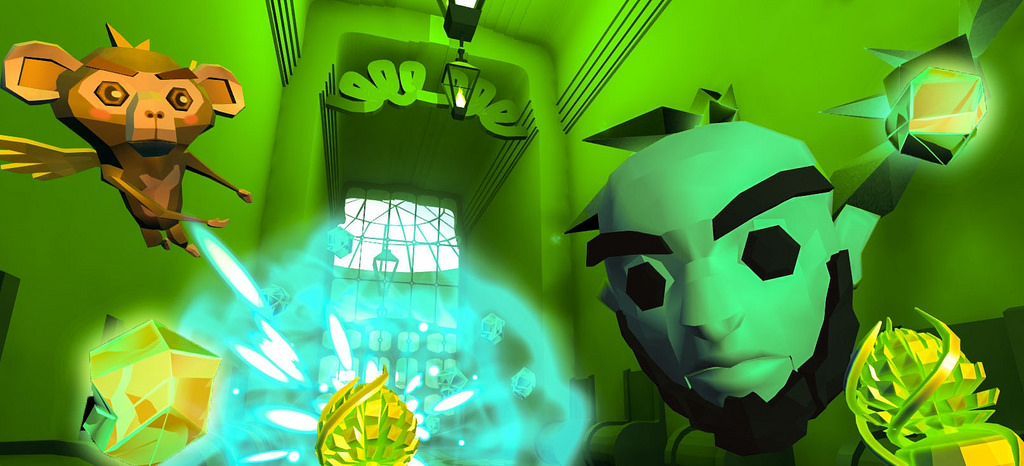My story in not one that involves sexual harassment and assault directly, however
being in a relationship with someone who has deal with this can create many
situations that are tough for both sides. How does Vantage Point help create an understanding and a level of empathy with victims of sexual harassment and assault?
● Last November, in Monaco, I sat at a speaker dinner after a TED event. The men and women were remarking on how most people truly don’t know how to respond if somebody comes out and says “this happened to me”. It’s not that friends, colleagues, and family members have malicious intent and want to respond negatively - it’s just that often times, most friends, colleagues, and family members don’t know how to respond and how to be supportive. We need to better train users on the emotional and psychological impacts assault and harassment can have, and on how we can be better and more supportive communities that know how to respond when victims find the courage to speak out.
Why is Vantage Point needed now and why is VR the platform you chose?
● Vantage Point was always needed - we just didn’t have the technological capabilities to
offer it. I wish somebody had created more effective educational programs before my
team and I decided to work on this, because it would have saved me and a lot of my
friends from situations none of us wanted to be put in. We hear women coming out, and
men coming out, and members of the LGBTQIA community coming out, and everybody
coming out about their stories, but we offer nothing more than condolences. We offer no
steps forward to change the culture, we offer no plans to restructure these social
structures and systems we have developed and perpetuated over the course of history -
through silencing, and normalizing, and through subliminal bias. Vantage Point
effectively tackles all of these problems. We teach communities on how to be more
empathetic, and we humanize the program and show both the local and global agency of
a user’s decisions as it pertains to the sexual violence landscape. We train users on how
to respond, and how to intervene, and these trainings are more effective than the
existing solutions. The equation I can make there is that it’s like doing an aviation
simulation rather than acting out flying an airplane with a designated pilot. If we can
leverage technology to make humanity a more empathetic and understanding species,
and glorify all of the positive traits of humanity and create social systems that don’t allow
room to justify the negative ones, then why wouldn’t we? Virtual Reality (VR) as the
platform of choice almost just seemed like a no-brainer to me. You have VR being
leveraged for training across every other field for the use cases of neurorehabilitation,
and stress reduction, and empathy-oriented experiences, and narrative journalism, and
PTSD therapy (which, by the way, 94% of rape victims develop PTSD), and aviation
simulations. When you look at that, and look at our program, it’s not like we’re
announcing some new unorthodox use case of VR. Sexual violence (including sexual
assault and sexual harassment) is just such a taboo topic that others haven’t really
approached it in this way - saying “okay, so we see that it works and all of these things
VR has helped create significant advances in are in some way tied to sexual violence -
so let’s use it to create more effective educational training tools to combat sexual
violence too.” We envision a future where all sexual violence (assault, harassment)
training and educational programs are conducted in VR.
Recently noted tech journalist Robert Scoble had several individuals bring to light
cases of sexual harassment and assault against him. Scoble responded in a blog
post by vilifying the accusers and saying what he did was not harassment. Scobel went as far as saying that the accusers were jumping on the bandwagon.
What are your feelings on this? What is the definition of sexual harassment?
https://www.theverge.com/2017/10/25/16547332/robert-scoble- sexual-harassment-
misconduct-response- blog-post
● I don’t think sharing what I actually think about this is appropriate for an article that
anyone can reference later - because I have many negative things to say about anybody
who views harassment within that context. This honestly infuriates me. First of all
#MeToo is not a bandwagon - it’s the opportunity for those of us who have been silenced
all our lives to have a voice. That’s the equivalent of referencing any major movement in
the course of history aimed at giving a marginalized group a voice as “joining the
bandwagon.” If you don’t want to see #MeToo in the news, change society and the
culture leading to widespread sexual violence. Second, the ability to make or break a
career is not what qualifies sexual harassment. Sexual harassment is being made to feel
that you’re relinquishing something that you don’t want to give or offer - it can be direct
pressure, or it can be coercion. Leveraging power over somebody’s invulnerability is
harassment. Sexual harassment is being vulgarly cat-called on the street - could
somebody on the street make or break my career? Probably not. Is it sexual
harassment? Yes.
● In my definition, sexual harassment is the blatant use of power to make derogatory
statements or to take a degrading stance towards an individual with sexual undertones.
This can come in the form of statements about somebody’s body, whether or not
someone is dressed appropriately, or pressure or coercion to do something that you
otherwise wouldn’t do. Power can be in the form of physical power, power within the
context of the relationship (boss, employee), or power relative to the situation.
Why are these assaults many times viewed as accidents and things like party culture and alcohol used as excuses?
● Assaults are not viewed as accidents - minor incidents are normalized and those who
experience them tend to label them as accidents because it makes it easier to digest - to
believe that somebody’s intent was not to harm you. It’s just like any other human-to-
human experience where you have personal boundaries and emotional context - it’s
easier to forget it and move on from it if you assume the person’s intentions weren’t to
hurt you and that they simply didn’t know better. It shifts the blame off of the person, and
towards something external like a lack of understanding. Using the term accident is a
scapegoat to save a person from his or her actions - but not in the sense of wanting to
save the person, more so in the sense of needing to be able to process it for yourself.
Because those who are victims of assault, or who have been harassed, know that it’s not
in their favor to speak out and up. It leaves you feeling like you really can’t do much
about the situation - because where do you go? Especially when most of the time, the
person assaulting you or who has or is harassing you holds the power and is leveraging
that power against you? If you can shift the blame away from the person, then you can
more easily process the situation as a victim. It’s almost something that we have to do,
because harassment and assault happens on such a minute scale on a day-to- day
basis, that to even process those instances, you almost have to automatically forgive
people otherwise you walk around carrying feelings of resentment and anger towards
the subset of people who assaulted and harassed you.
● Party culture and alcohol are used as excuses again as scapegoats. We as a society
don’t want to acknowledge that we’re failing. If a classroom of students fails an exam, we
don’t look at the number of students who were involved in extracurriculars, we look at
the educational system. If we look at demographics and socio-economic status, these
factors are taken into account within the context of the available educational programs
and the access students have to these programs (access meaning various things). We
know that if students failed, it’s because we failed to prepare them - no matter what other
factors can be taken into account, and we know to look at the various factors preventing
them from accessing the education available and we look at the education available to
identify if it’s comprehensive and to dissect whether or not the system’s structure aligns
with the goals. When we look at things like party culture, we don’t want to identify
ourselves (as a society) as failing in some way - so we shift the blame. But if we really
wanted to change the problem, we would look at the existing educational tools, and at
the effectiveness of these tools, and at how comprehensive these tools are. Are we
educating people based upon real-life situations? Are we truly giving them the best
training tools we can? Are we teaching people empathy, are we teaching people about
EQ, and about these human qualities that we tend to take out of the picture when we
dehumanize topics such as assault and harassment by shifting the blame to alcohol and
party culture? Let’s teach people to be responsible community members - and to look
out for one another even in the event that alcohol is present. Let’s teach people consent.
Let’s teach people to take accountability for the fault of the individual and fault of society
rather than shifting the blame to “party culture” or “alcohol”. This is why my team and I believe education and training is truly the only thing that can combat all aspects of the
sexual violence landscape.





































